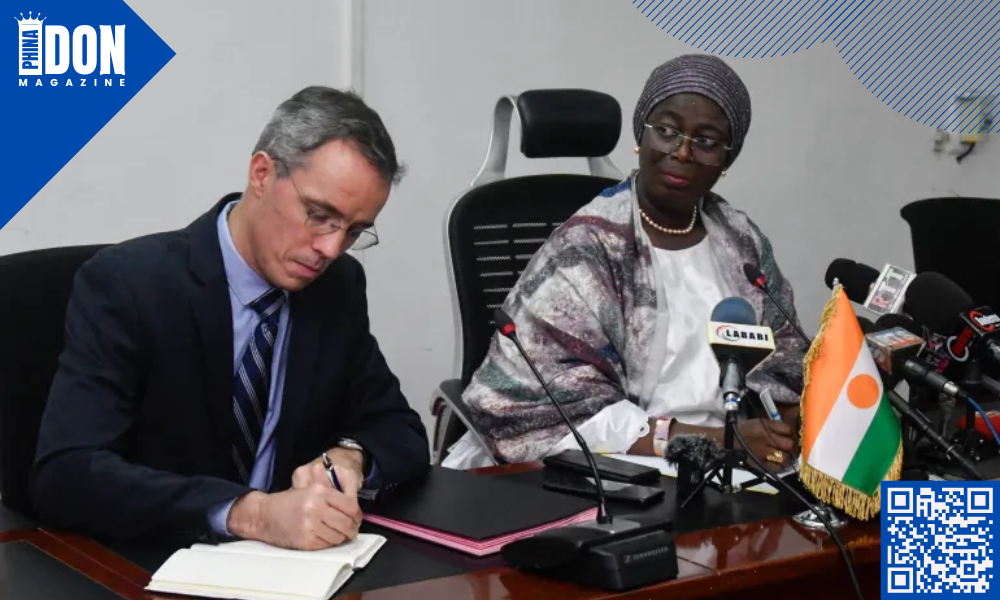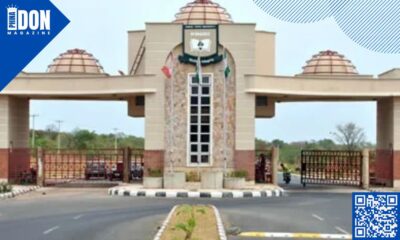Foreign
Lebanese Lawmakers Set to Elect New President After Prolonged Deadlock.

On Thursday, Lebanese lawmakers are poised to elect a new president, marking a significant development after more than two years of political stalemate. This election is crucial for Lebanon, which has been grappling with a severe financial crisis exacerbated by ongoing instability.
Army chief Joseph Aoun emerges as the leading candidate, with analysts suggesting that he could play a pivotal role in enforcing a truce in southern Lebanon, particularly following the recent conflicts that have impacted the region. Lebanon has remained without a president since Michel Aoun’s term expired in October 2022, and previous attempts to fill the vacancy have faltered due to a deadlock between pro- and anti-Hezbollah factions within the parliament.
The landscape has shifted considerably since last autumn, when a significant escalation in hostilities between Israel and Hezbollah resulted in substantial losses for the militant group, including the death of its long-standing leader, Hassan Nasrallah. Additionally, Hezbollah’s support base in Syria has weakened following the recent upheaval that saw President Bashar al-Assad ousted by rebels.
With a fragile ceasefire in place since late November, lawmakers will convene for the thirteenth time to attempt to elect a new head of state, commencing at 11:00 am local time (0900 GMT). In a nation still recovering from the scars of its 1975-1990 civil war, the fragmented political elite typically reaches a consensus on a candidate before any successful parliamentary vote occurs.
International pressure has intensified ahead of this critical session, with notable figures such as French envoy Jean-Yves Le Drian and US envoy Amos Hochstein advocating for a successful election. A Saudi envoy’s recent visit to Lebanon further underscores the regional interest in stabilizing the political landscape, with indications that both the United States and Saudi Arabia support Joseph Aoun’s candidacy.
Caretaker Prime Minister Najib Mikati expressed optimism about the upcoming vote, stating, “For the first time since the presidency became vacant, I am pleased that God willing tomorrow we will have a president.” As Lebanon stands at a crossroads, the outcome of this election could pave the way for much-needed reforms and recovery in a country desperately in need of stability.
Foreign
UK Deploys Military Assets to Middle East Amidst Escalating Iran-Israel Conflict.

In response to the escalating conflict between Iran and Israel, the United Kingdom is deploying fighter jets and other military assets to the Middle East. Prime Minister Keir Starmer announced the deployment, stating it is for “contingency support.”
The Prime Minister has engaged in discussions with both US President Donald Trump and Israeli Prime Minister Benjamin Netanyahu, emphasizing the need for de-escalation. Foreign Secretary David Lammy has also communicated with Iranian officials, urging restraint and emphasizing the importance of protecting civilians.
The UK’s actions reflect a commitment to regional stability and a concerted effort to prevent further escalation of the conflict. Ongoing discussions with allies aim to de-escalate the situation and promote a peaceful resolution.
Foreign
A person who attacked and killed a Nigerian schoolboy with a sword in the UK has been sentenced to life in prison.

Marcus Monzo, a 37-year-old of Spanish-Brazilian descent, has been sentenced to life imprisonment with a minimum term of 40 years for the murder of 14-year-old Daniel Anjorin in Hainault, northeast London. The sentencing follows Monzo’s conviction for the unprovoked and brutal attack on Daniel, as well as attacks on other members of the public and police officers, in April of last year.
The court heard how Monzo, under the influence of cannabis-induced psychosis, initiated a violent rampage, culminating in the near-decapitation of Daniel Anjorin as the young boy walked to school. Judge Joel Bennathan strongly condemned Monzo’s actions, acknowledging the profound grief inflicted upon Daniel’s family.
Judge Bennathan also commended the bravery of the police officers involved, highlighting their courage in confronting and disarming Monzo, thereby protecting the public. Monzo’s sentence reflects the severity of his crimes and the devastating impact on the victims and the community.
Foreign
Niger to Nationalize Uranium Mine Amidst Shifting Alliances.

Niger has announced plans to nationalize the Somair uranium mine, currently operated by French nuclear firm Orano. This decision marks a further departure from France, Niger’s former colonial power, and a potential realignment with Russia. The military government, in power since a 2023 coup, accuses Orano of unfairly benefiting from the mine’s output since its launch in 1971. Orano, which holds a 63% stake in Somair, disputes the allegations and has threatened legal action, citing a “systematic policy of stripping mining assets.” This move follows Niger’s earlier removal of Orano’s operational control over key mines in the country. The nationalization reflects a broader trend in West Africa, with Mali and Burkina Faso also pursuing similar policies under military rule. The situation is further complicated by existing arbitration processes between Orano and Niger, including a recent lawsuit filed by Orano.










